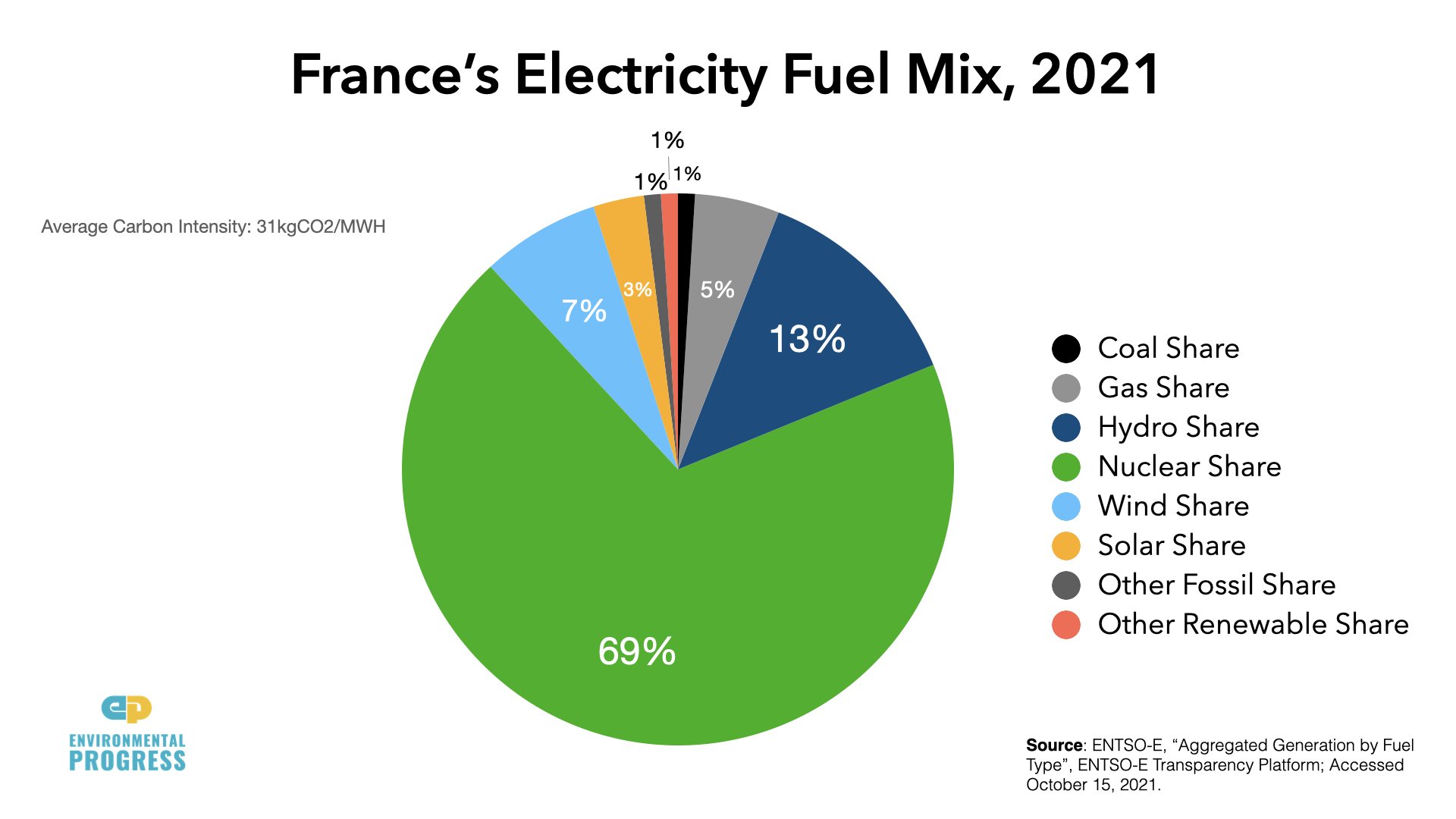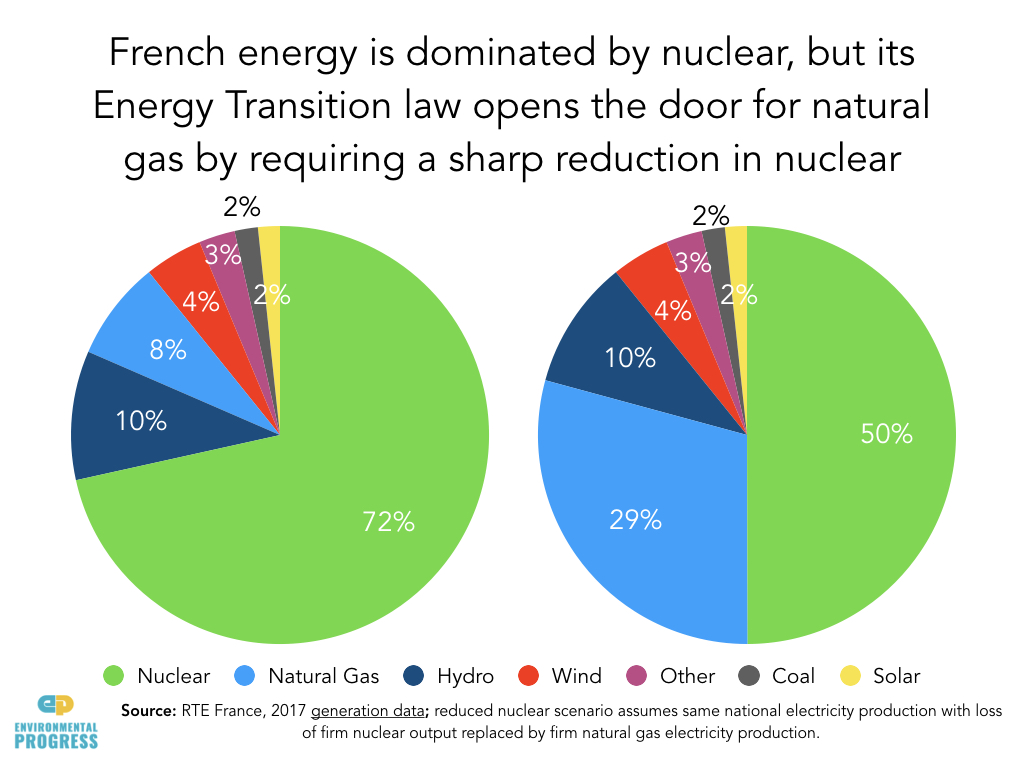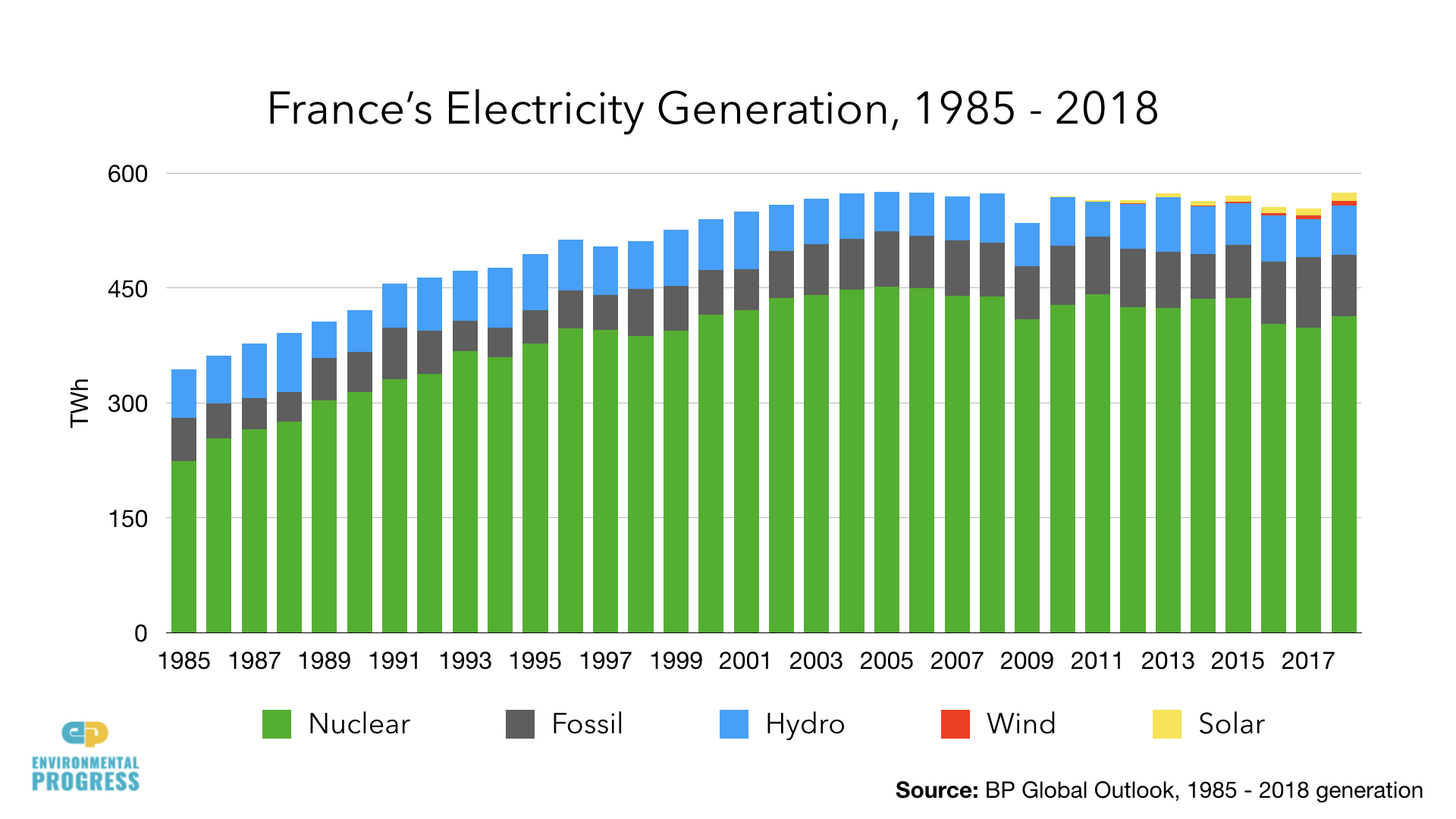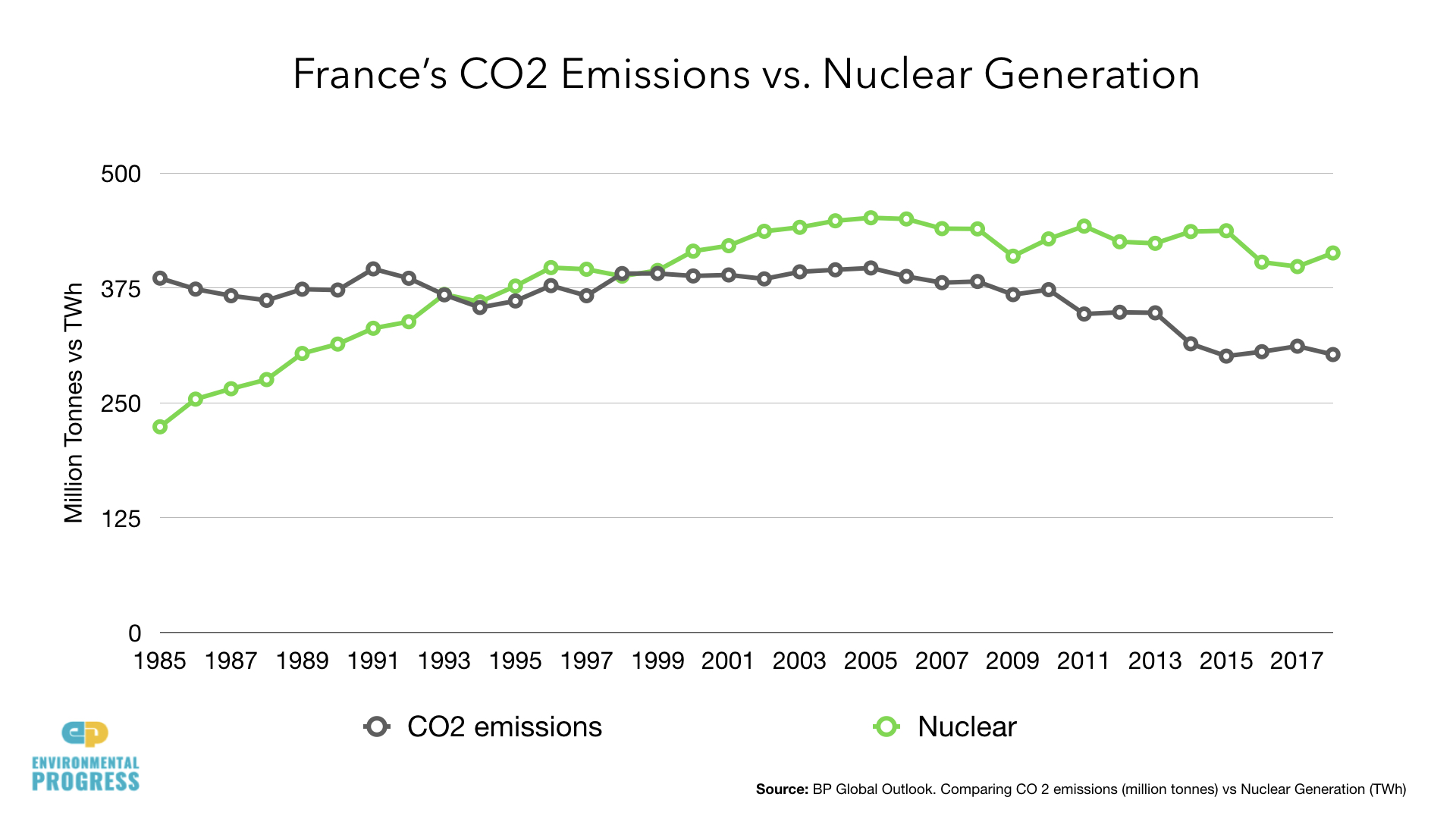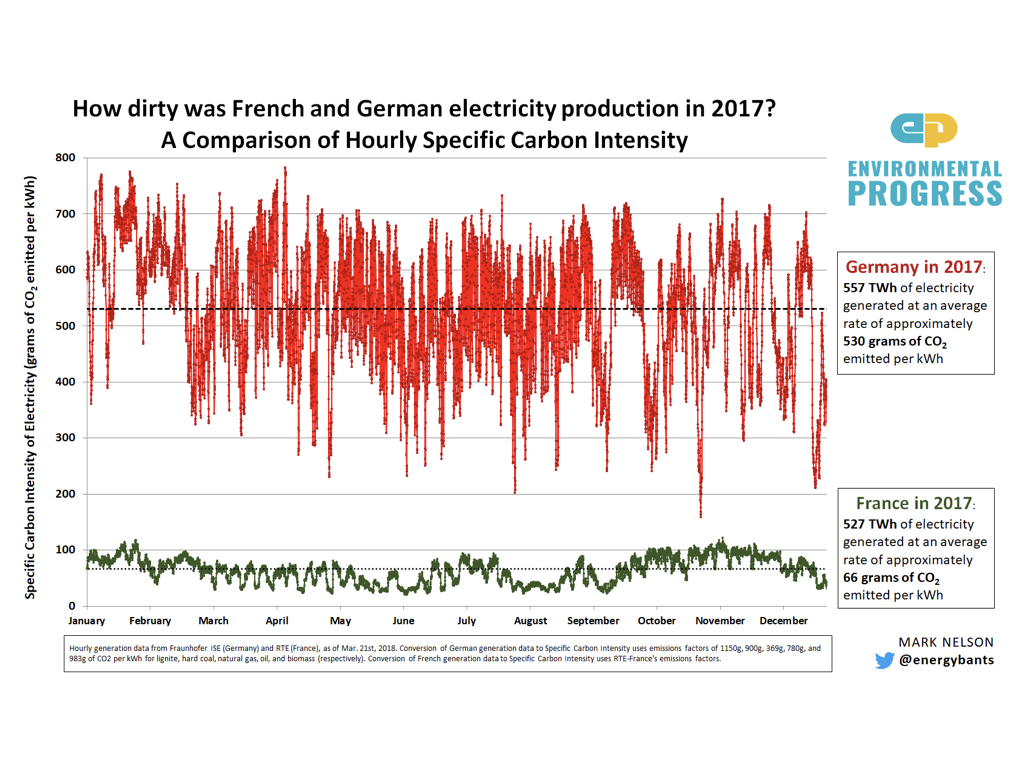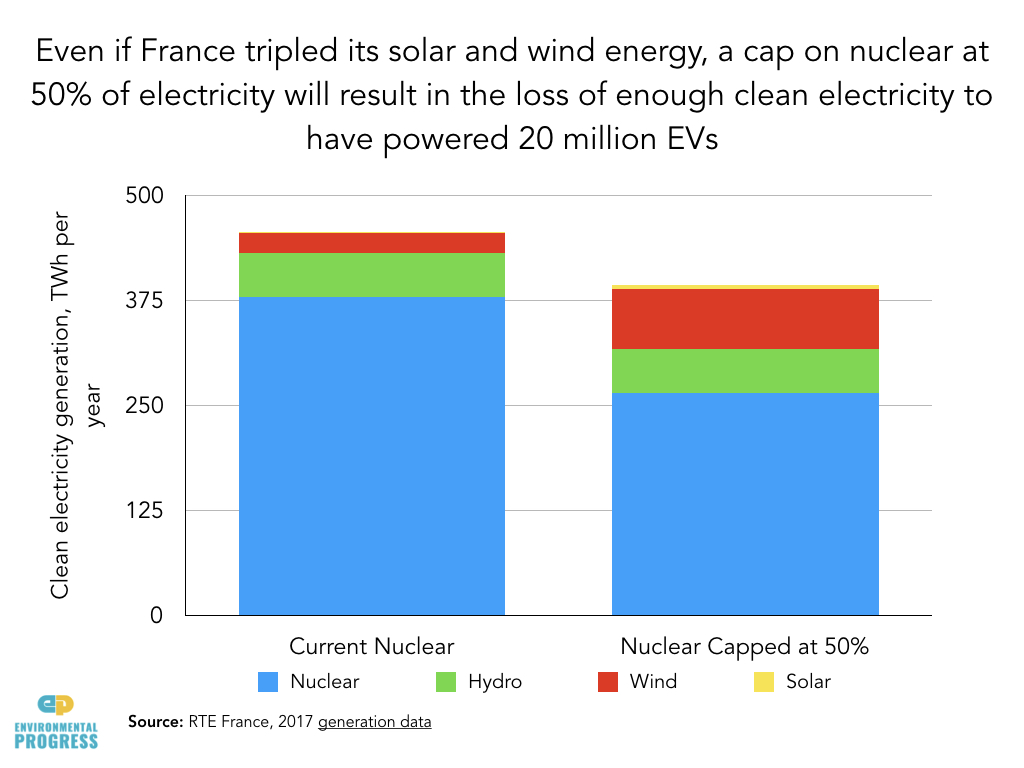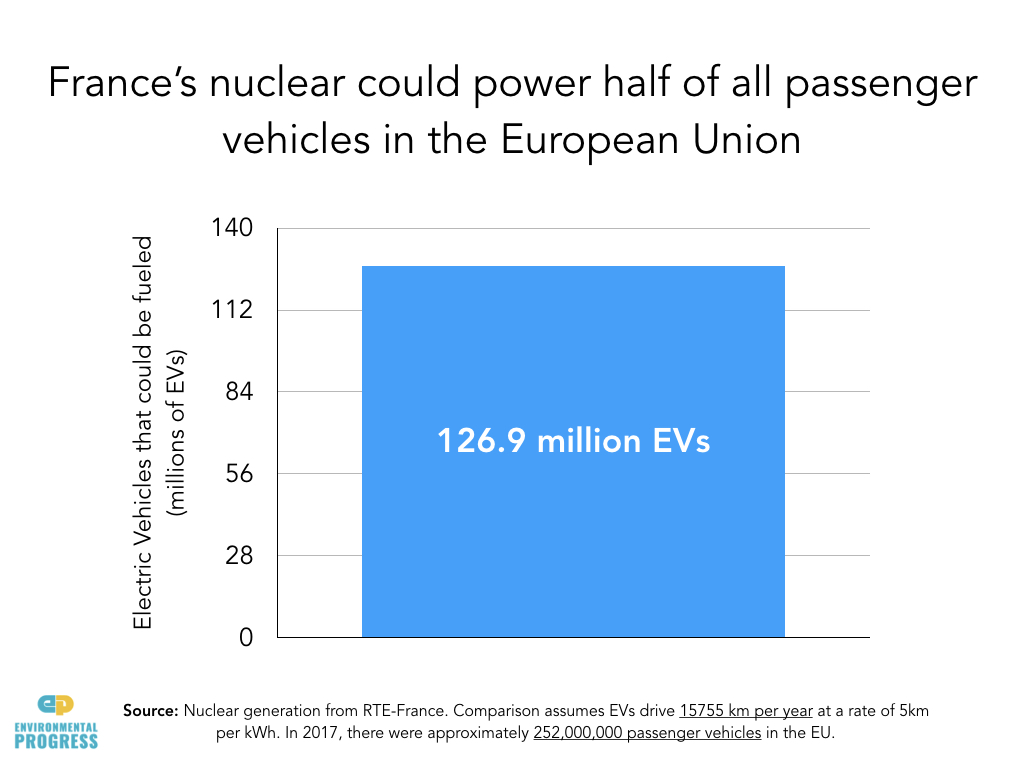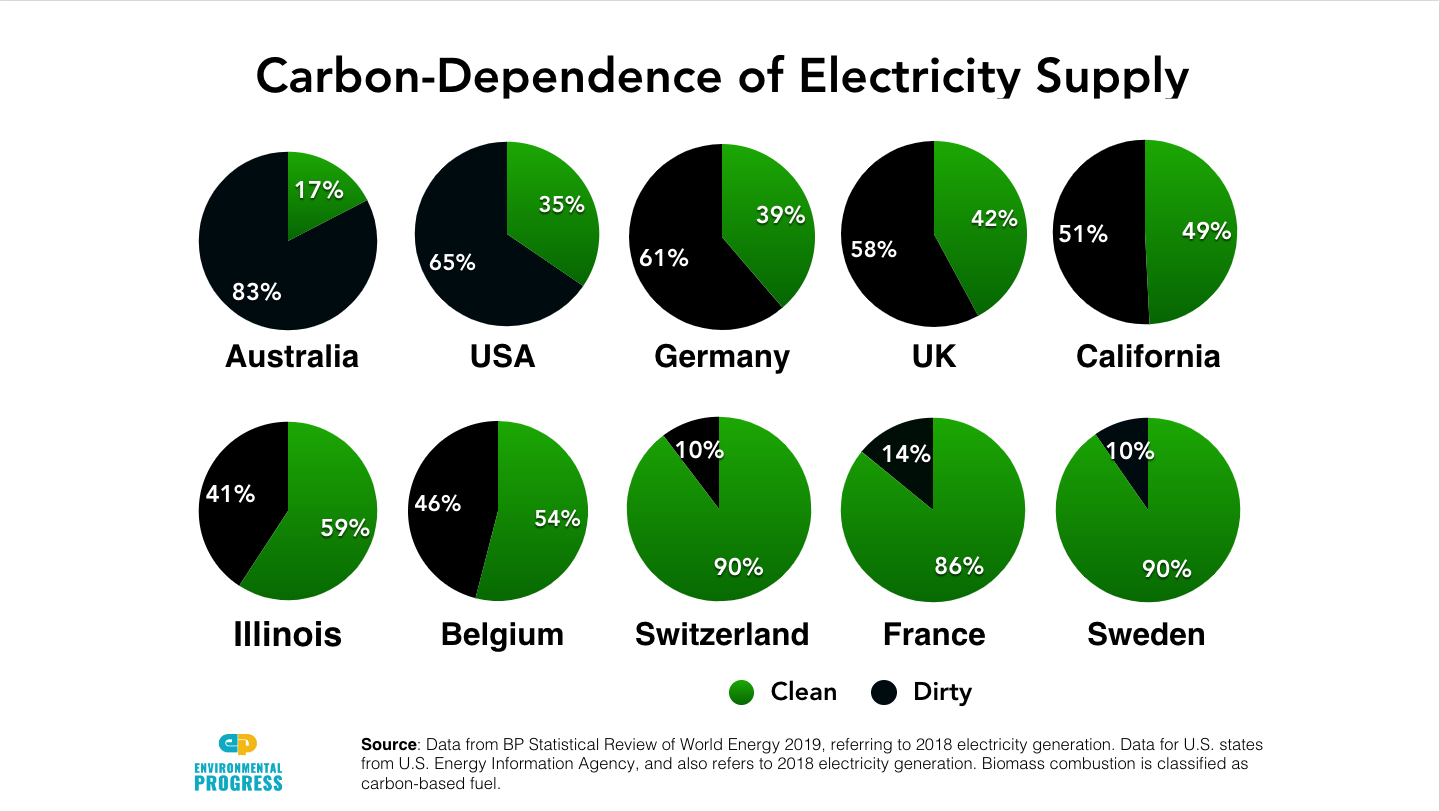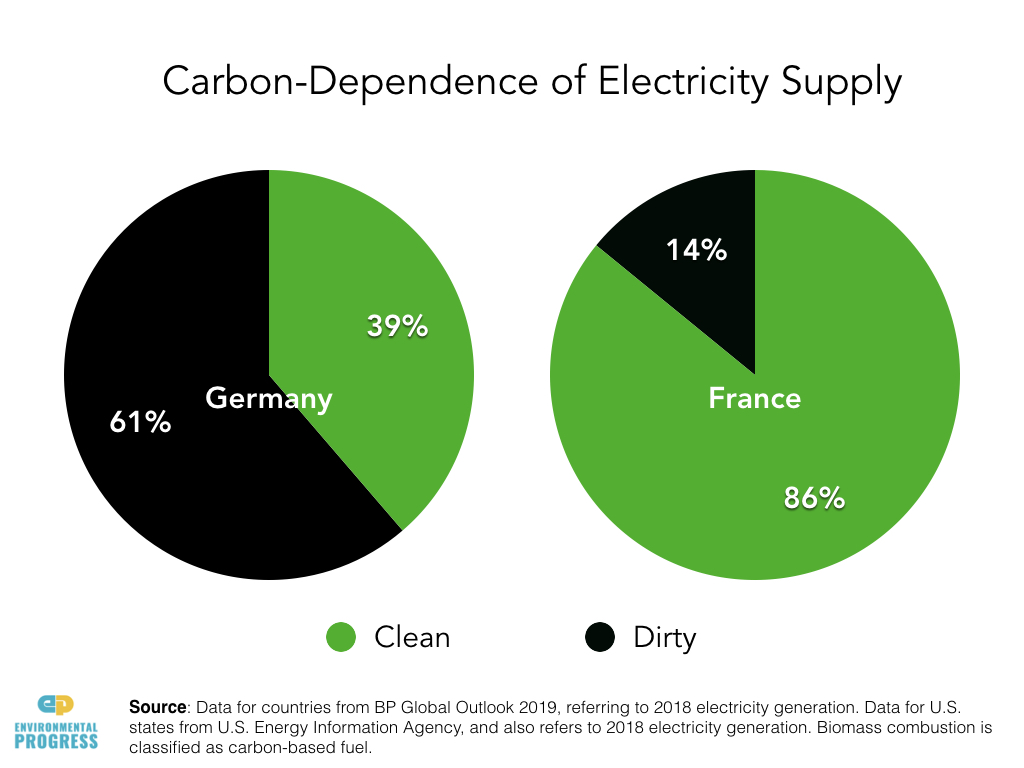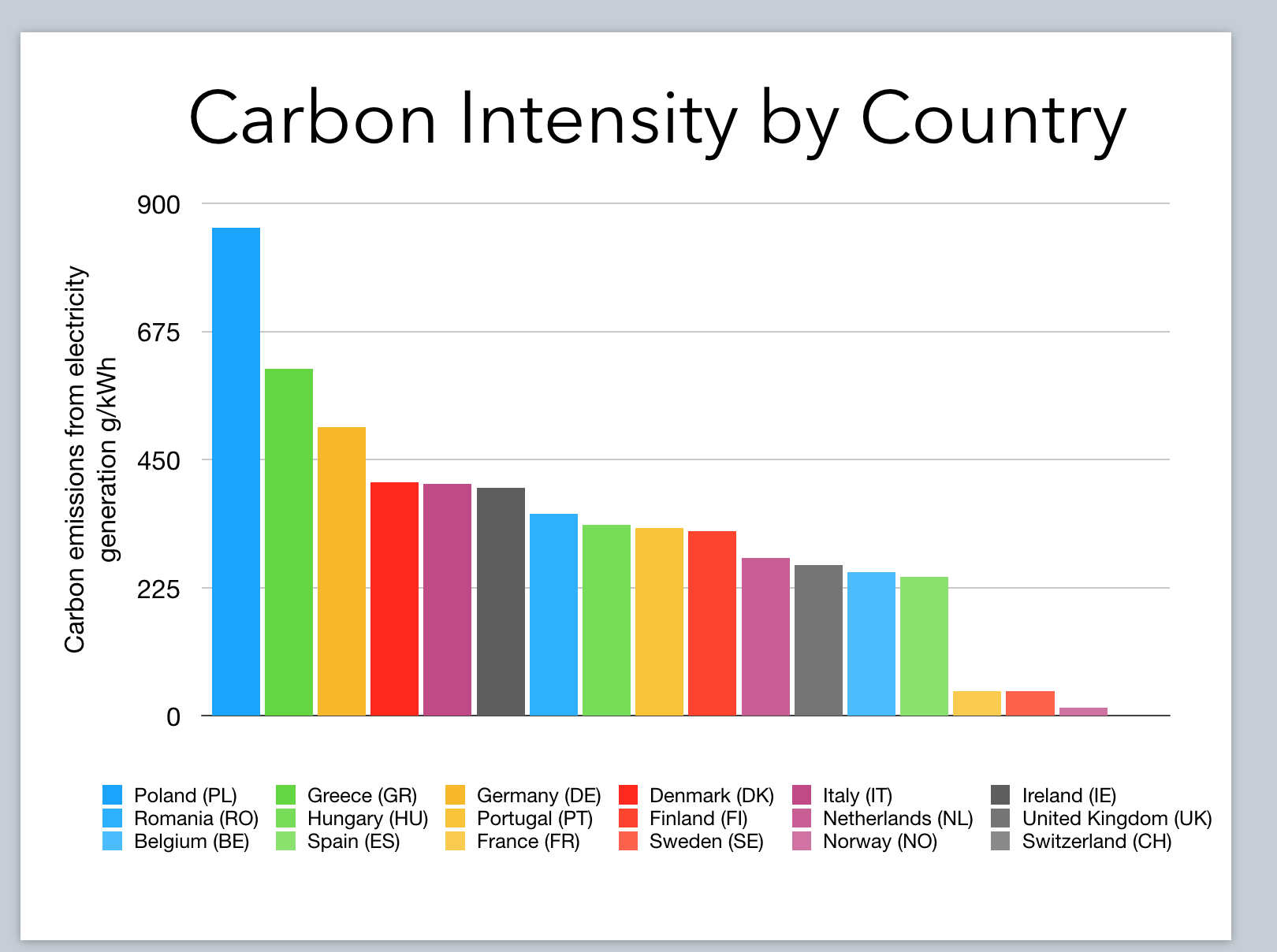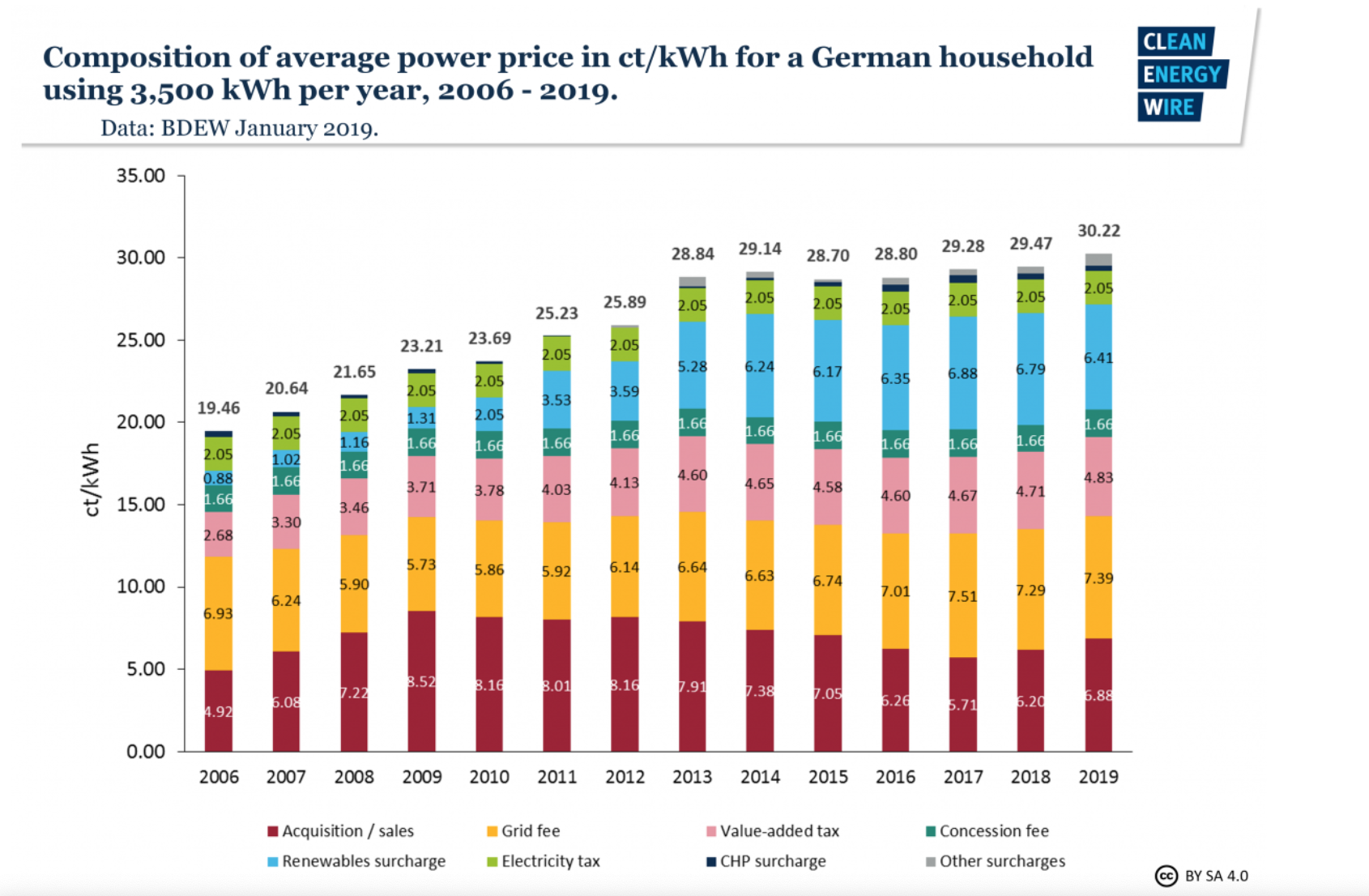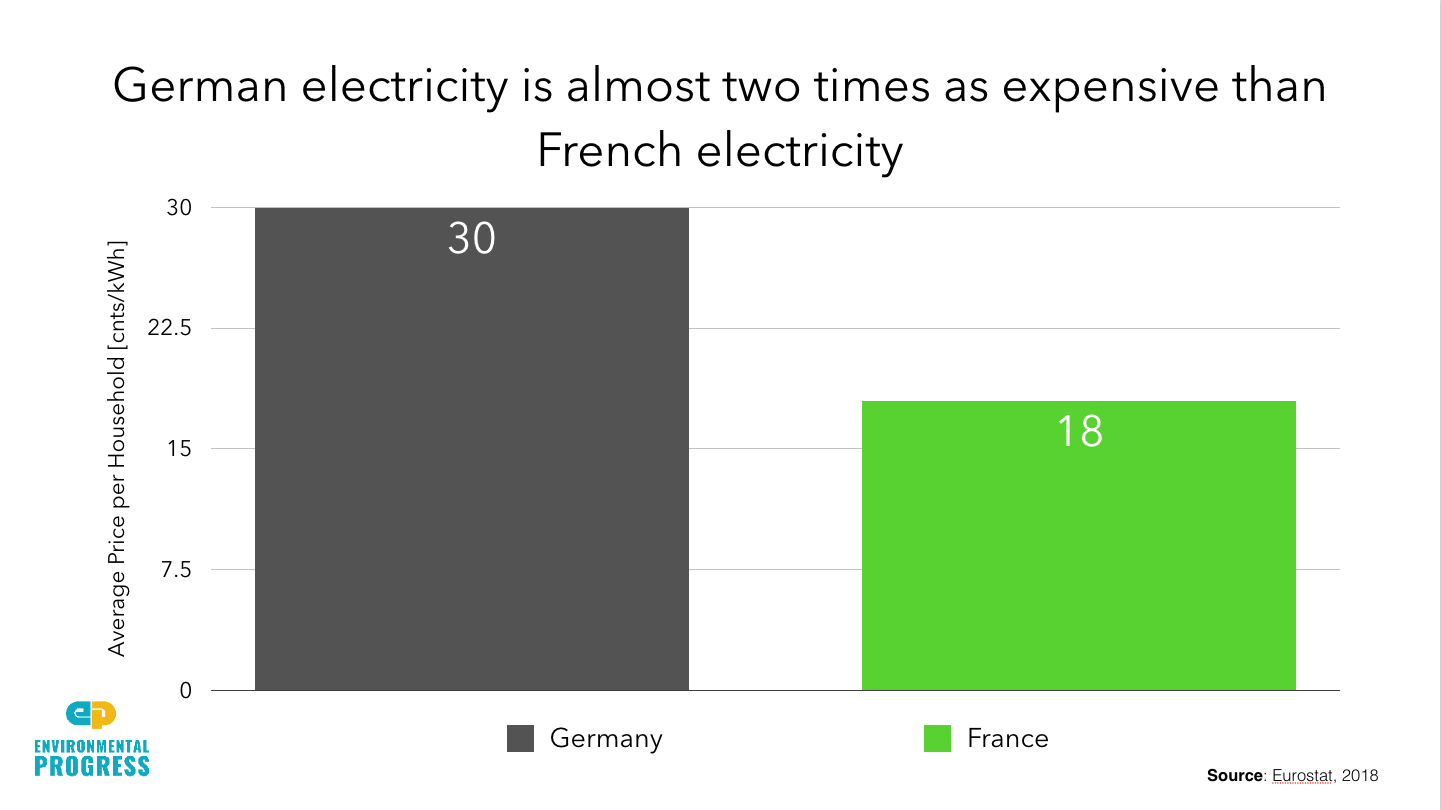Updated August 30, 2021
France
France's Energy Transition for Green Growth Law promises to limit nuclear power’s contribution to 50 percent of France’s total electricity by 2025.
Nuclear currently provides approximately 72% of France's electricity.
France currently has one of the lowest prices for electricity among leading European economies.
To fund its energy transition, the French Energy Regulator has already acknowledged that grid operators will be allowed to increase network usage fees, which currently account for a third of customers’ electricity bills.
On average, Germany's electricity was 11 times dirtier than France's in 2018, yet France’s electric bills are a little over one-half Germany’s.
France has cut a deal with nuclear power company EDF to require the closure of two reliable reactors in good condition at Fessenheim before fueling a new reactor at Flamanville.
Our analysis finds that $32 billion has been spent on subsidies for wind, solar, and biomass electricity since 2007, raised by directly taxing all electricity sales.
France exports nuclear electricity to Germany even when Germany’s renewables are producing lots of power, as Germany has insufficient internal electricity transmission capabilities to spread its renewable energy around the country. Should ‘extra’ French plants be closed, Germany’s own coal plants will directly replace this essential energy supply.
Electricity for households, commerce, and industry is taxed at a much higher rate than natural gas sales to the same customers, despite most electricity coming from emissions-free nuclear. Meanwhile, most young French citizens disapprove of nuclear energy and believe it contributes to climate change, like coal.
France has spare reactor capacity today to fuel a fleet of millions of electric vehicles. If France operated its nuclear plants as consistently as similar plants are operated in the U.S., it could produce the energy for 40 million EVs, emissions-free.
Dozens of climate scientists and conservationists have urged President Emmanuel Macron to do everything in his power to protect France's nuclear industry and avoid reversing the country's progress on clean energy.
In 2018, President Macron delayed efforts to phase out nuclear from 2025 to 2035, with a priority on closing coal plants first.
Macron is more dedicated to France’s nuclear program than most of his ministers and the French public, which is nearly as anti-nuclear as Germany.
EP and it’s allies held a nuclear pride demonstration on October 29, 2019, urging the French public that they must keep their nuclear plants open and continue to be the world leader.
After just a few short years, the Stand Up for Nuclear movement is having major impacts on government policy in Britain, the Netherlands, France, and dozens of other nations around the world.


